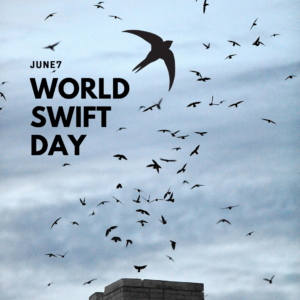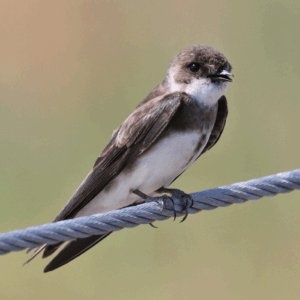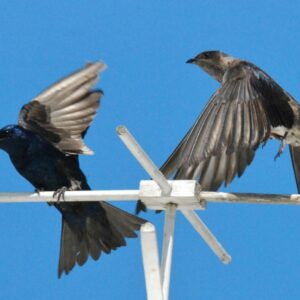Swallows Sending an SOS
Since 1970, the populations of Aerial Insectivores (birds who feed by catching insects in flight) have declined more than any other bird group. Studies in Europe and the Caribbean point to significant declines in insect populations, and species like the Barn Swallow or Purple Martins are struggling to find food. Pesticides to subdue insect populations have played a huge role in modern agriculture since the Second World War, and it seems its effects are catching up to our flying insect-dependent birds.
The North American Bird Conservation Initiative (NABCI) in Canada, which includes Nature Canada, recently released the second State of Canada’s Birds report. In this report, we showed how the populations of Canadian bird groups have changed since 1970, and for aerial Insectivores, it is not promising.
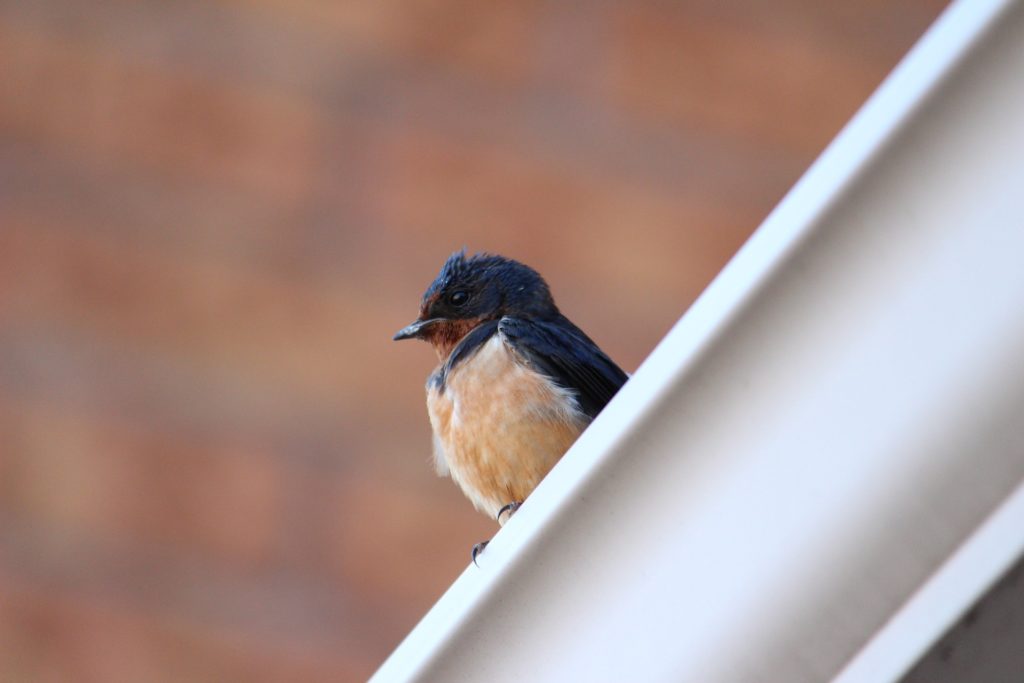
Barn Swallow Perching
What’s Happening?
Neonicotinoids (Neonics) are the latest widely used family of pesticides that appear to also be destroying non-target insect populations and, by extension, the species that feed on them-including our swallows! When there isn’t enough food, reproduction decreases and the population of a species can’t keep up with the mortality rate, resulting in a declining population. Add in the effects of climate change, collisions with human structures and inadequate breeding habitats, and we have a recipe for disaster.
Climate change is also, among many other things, negatively impacting aerial insectivores. Birds time their migrations and breeding cycles to line up with food availability. Fluctuations in our formerly consistent weather patterns, due to the changing climate, is making their survival difficult since there is often no longer a reliable food source at migratory stopovers (when these birds need food the most). The natural cycles of migratory birds (or, their internal clocks) are not adapting to the changes fast enough.
Through Nature Canada’s Save our Swallows campaign, we have developed simple beneficial practices for rural residents in southern Ontario to follow. If you live in a rural area, consider adopting some of these practices yourself and sharing them with your neighbours.
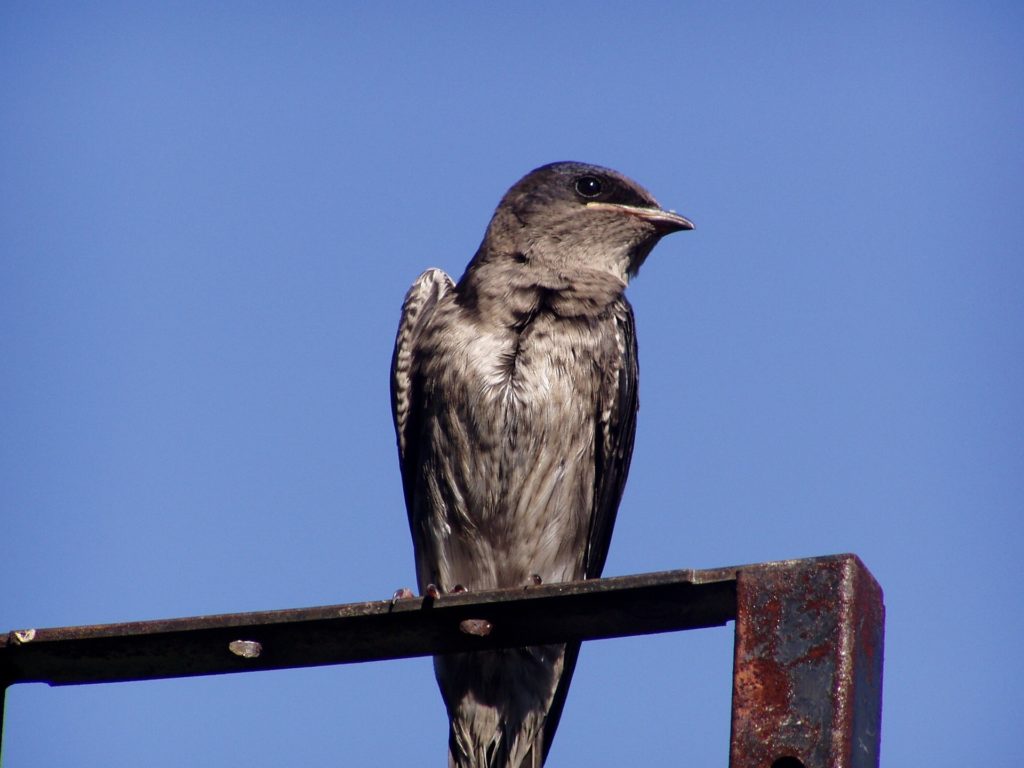
A young Purple Martin
Purple Martins
Purple Martins, the largest member of the swallow species, have a close relationship with humans that started in pre-colonial times when they got used to nesting in gourds hung up to dry by Indigenous peoples. Now, they are 100 percent dependent upon human-built housing for their nesting habitats east of the Rocky Mountains. This means that we as humans are responsible to look out for them and to help ensure their survival.
As part of our Save Our Swallows (SOS) campaign, we are committed to improving the southern Ontario breeding habitats for Purple Martins. With the support of the Ontario Purple Martin Association, we are providing 30 “condos” that can support 14 families in each, placed along Lake Erie and eastern Lake Ontario.
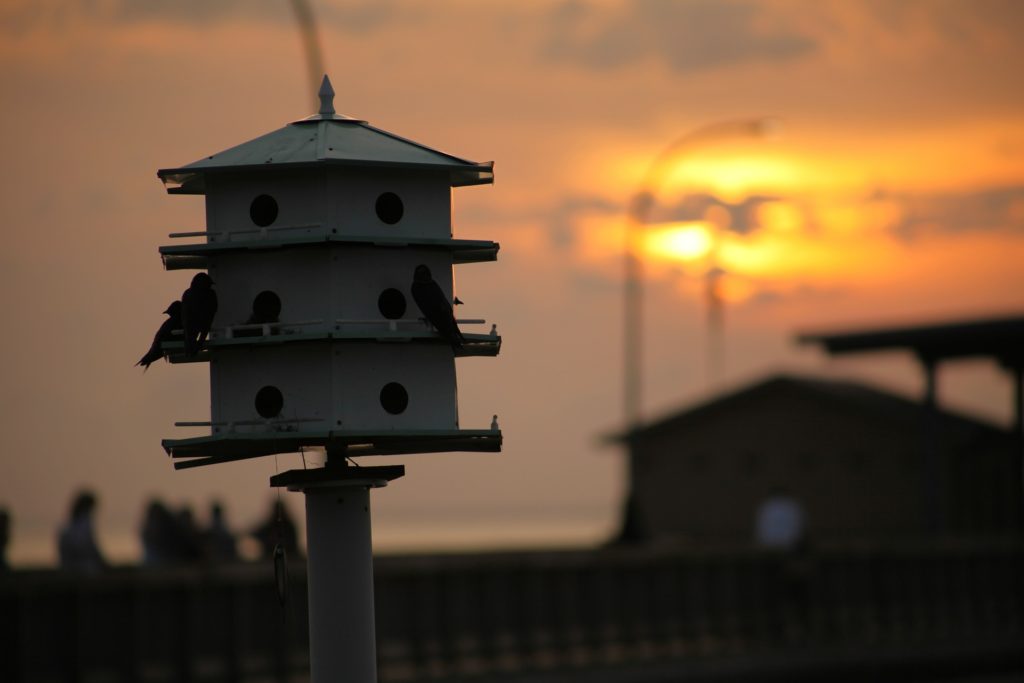
Example of a bird housing unit, or “condo”
What Now?
Aerial insectivores like swallows play a huge role in keeping our forests and farms healthy by eating insects that damage crops and vulnerable plants. With your help, we can continue working with farmers to encourage responsible land stewardship. Birds of prey such as the Bald Eagle have recovered since the USA and Canada banned indiscriminate DDT use in the 1970s. This is proof that by spreading awareness of this critical issue, we can change the trend for swallows.
Help our birds however possible. You can share Nature Canada’s posts, donate to support the cause, sign the petition, or even fight to advocate for more protected areas. Every effort adds together, and there is proof that conservation efforts work. With just a little cooperation, we can save our birds.
Remember…
When we take action together, conservation works.
How You Can Help:
Sign the Petition: Nature Canada is working to create more protected areas in Canada to save our birds, aquatic animals and other endangered wildlife. Sign our petition to create real change and have your voice heard by our government when it matters most.
Speak Out: Use your voice to demand action from our government against broad-scale pesticide use and support organizations that advocate for nature. You can start by sharing our petition on social media!
Donate: Make a one-time or monthly donation to support our work, and join our email list to receive notifications of upcoming campaigns and our current issue-focus. Every little bit helps!
Vote with Your Fork: Support sustainable range-fed beef, sustainably run farms and choose produce that is organically grown. Also, avoid mass-produced “big batch” products that increase product demand and food waste by supporting local small batch businesses.
View the NABCI in Canada Report Here: www.stateofcanadasbirds.org
Le Rapport est Disponible en Français Ici: www.etatdesoiseauxcanada.org

